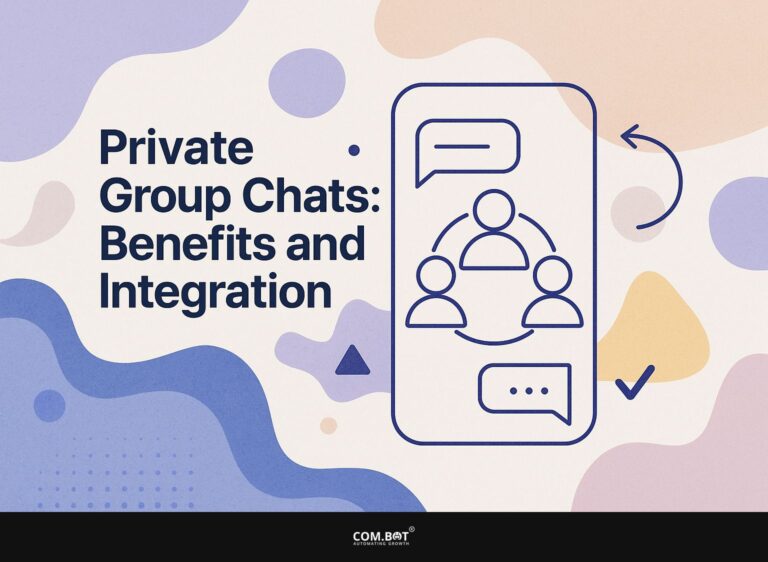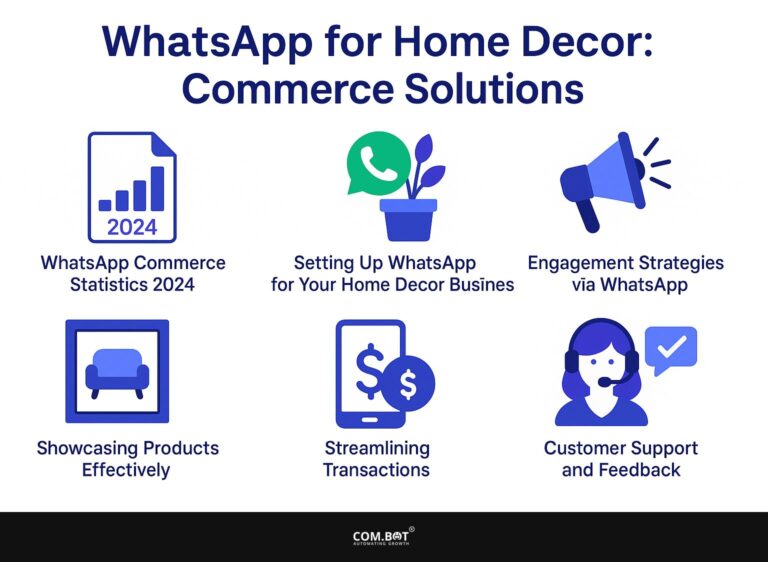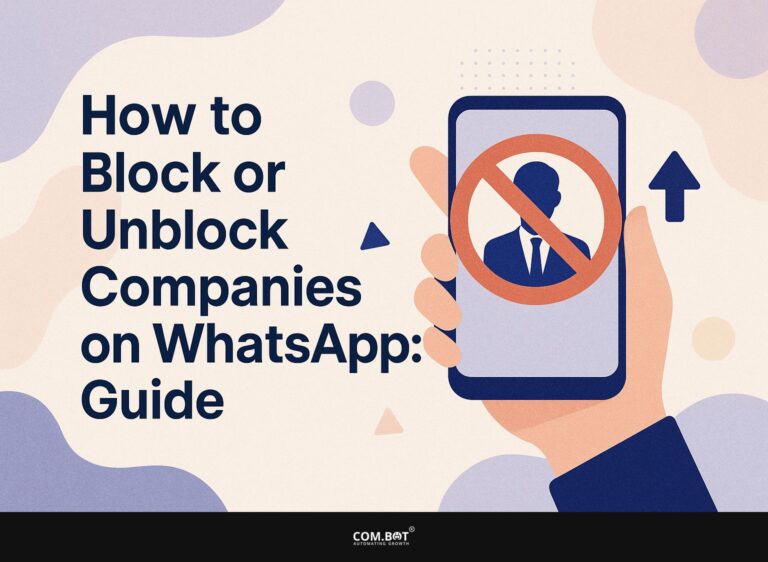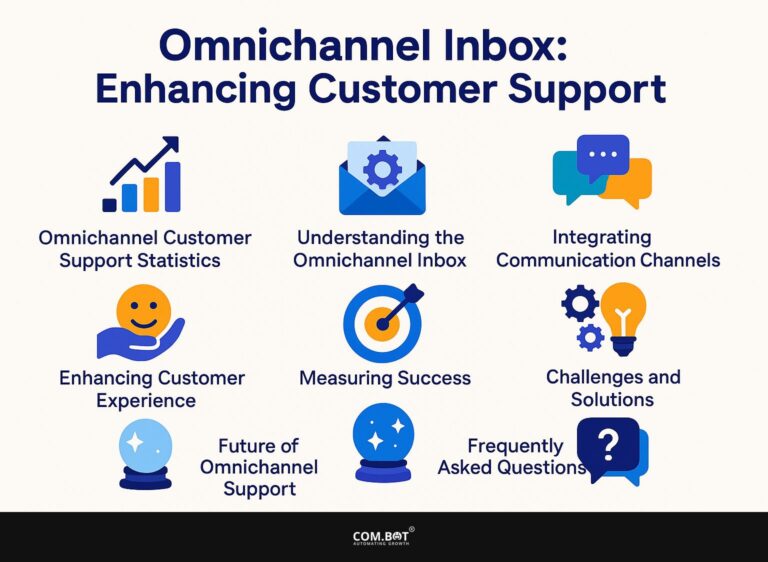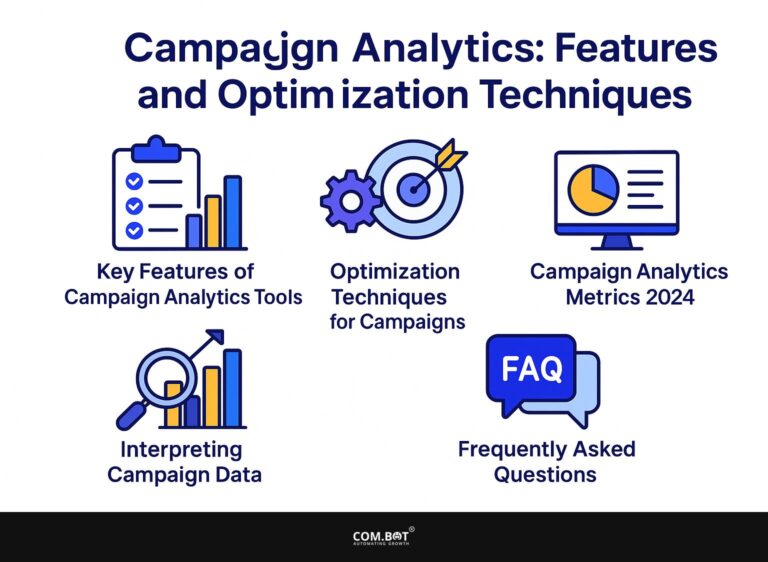WhatsApp Business: GDPR Compliance and Security for SMEs
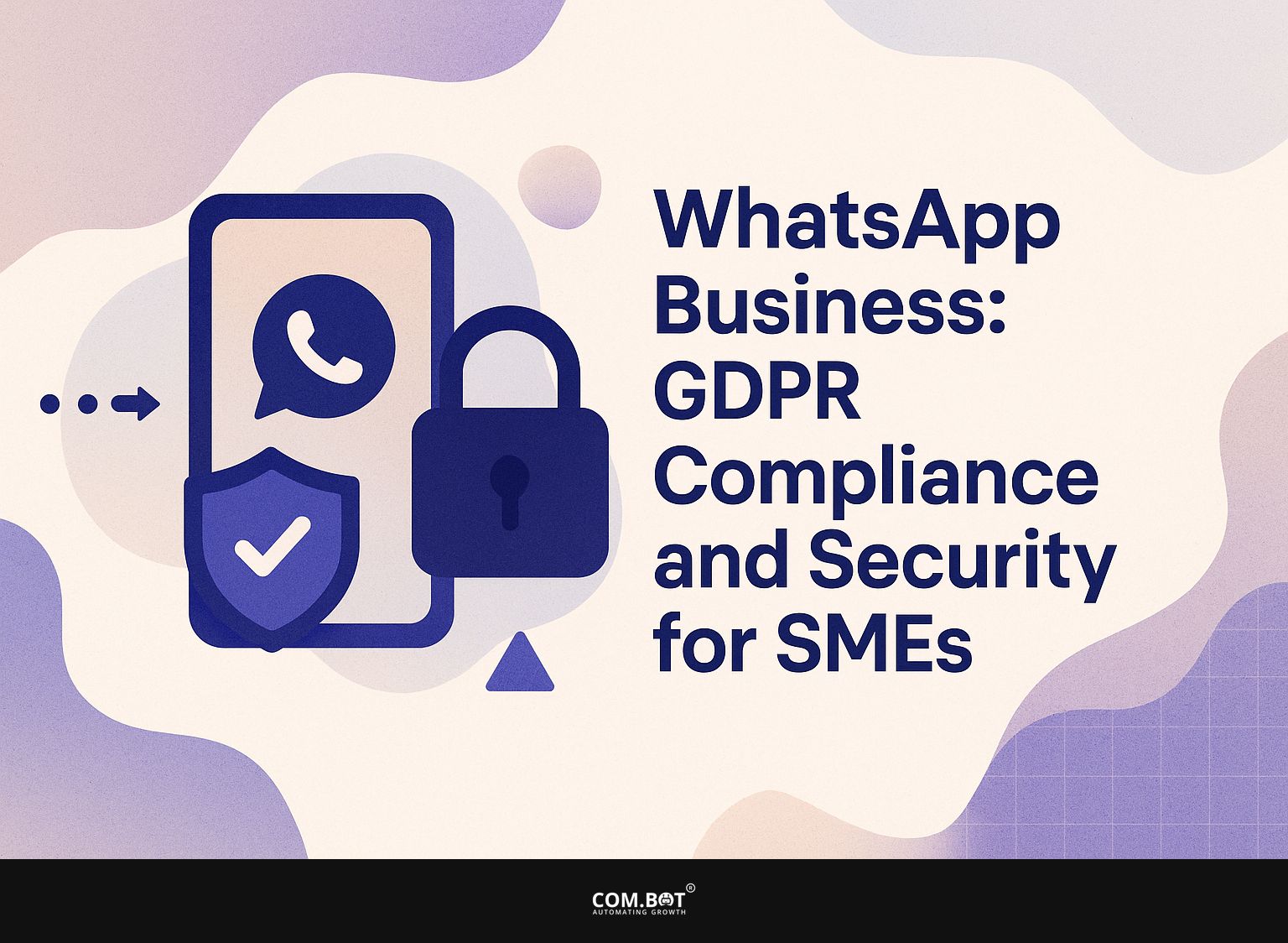
Following GDPR rules is essential for small and medium-sized businesses using WhatsApp Business. WhatsApp, included in Meta’s group of tools, provides strong data protection features that can help businesses follow complex rules.
This article looks at how using WhatsApp Business can improve your operations and keep your customer data secure while staying within GDPR rules. Learn practical strategies and tips to use this platform effectively while staying within legal rules.
Key Takeaways:
- WhatsApp Business offers basic tools for small and medium-sized companies to interact with customers quickly and successfully.
- Small and medium-sized businesses using WhatsApp Business need to follow GDPR rules, and knowing the main ideas and best practices is important.
- WhatsApp Business provides strong security measures, including end-to-end encryption and two-step verification, to safeguard sensitive information and meet GDPR standards for small and medium businesses.
- 1 Understanding GDPR Compliance
- 2 WhatsApp Business and GDPR
- 3 WhatsApp Business GDPR and Security Compliance
- 4 WhatsApp Business GDPR and Security Compliance
- 5 Security Features of WhatsApp Business
- 6 Best Practices for GDPR Compliance
- 7 Frequently Asked Questions
- 7.1 1. What is WhatsApp Business?
- 7.2 2. How does WhatsApp Business comply with GDPR?
- 7.3 3. Can SMEs use WhatsApp Business for marketing purposes?
- 7.4 4. Is WhatsApp Business safe for exchanging sensitive information?
- 7.5 5. Can WhatsApp Business be used for customer support?
- 7.6 6. Does WhatsApp Business have any data retention policies in place?
1. Overview of WhatsApp Business Features
Key features of the WhatsApp Business App include automatic replies, quick responses, and the ability to create a business profile, making customer support easier.
Managing customer interactions is easy with features like labels, which help sort chats for better organization. Those curious about optimizing these interactions might appreciate exploring Contact Management with WhatsApp API: Methods.
For instance, a retail store can label customers as ‘Pending Orders’ or ‘Return Requests’ to prioritize responses. The statistics tracking gives information about how messages are doing, helping businesses improve their communication plans.
A local restaurant might send pre-set messages during busy times to keep in touch with customers without needing someone to manage it all the time. These functions help make things run more smoothly and improve customer service.
2. Importance for SMEs
Small businesses can increase customer interaction by using WhatsApp Business, which can lead to a 25% rise in sales through easier access and better communication.
With over 2 billion users, WhatsApp Business provides an unmatched opportunity to reach potential customers. This free app serves as a cost-effective marketing channel, allowing SMEs to tap into new markets without hefty investments.
Real-time interactions allow faster replies to customer questions, building trust and satisfaction. Small businesses can use chat data to understand what customers like, make their products or services fit customer needs better, and improve their marketing plans. As mentioned, WhatsApp Business: Features, Benefits, and Strategies offers comprehensive insights into optimizing these interactions.
Setting up WhatsApp Business is simple:
- Simply download the app,
- Set up your business profile,
- Start engaging with customers.
Understanding GDPR Compliance
GDPR compliance is essential for businesses in the EU that handle personal data. It enforces strict rules on data collection and processing to safeguard user privacy (our discussion on user reporting systems examines how these tools can also contribute to data protection efforts).
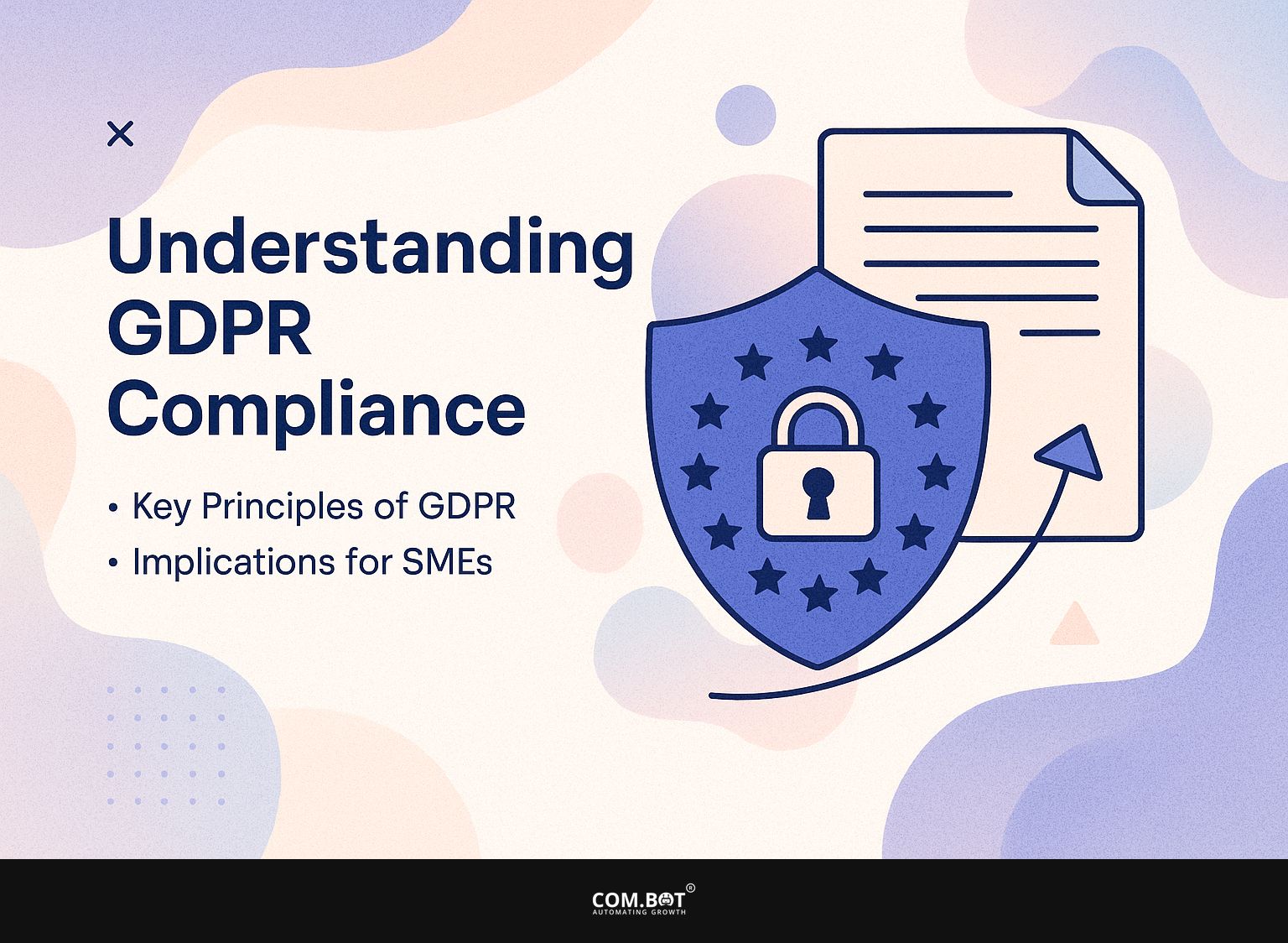
1. Key Principles of GDPR
The GDPR outlines seven key principles, including lawfulness, transparency, and data minimization, which guide businesses in their data processing activities. These principles guarantee fair use of data and safeguard personal rights.
For example, ‘lawfulness’ mandates that businesses must have a legitimate reason for data processing, or face fines up to EUR20 million. ‘Purpose limitation’ requires that data collected for one purpose cannot be used for another, preventing misuse.
‘Data minimization’ insists on limiting data collected to what’s necessary, reducing unnecessary risk. ‘Accountability’ demands organizations track compliance efforts, with penalties for those failing to demonstrate adherence.
Ignoring rules can result in significant financial losses and damage to your reputation. To bolster your understanding of these principles and ensure compliance, consider implementing tools like the Com.bot GDPR & CCPA Compliant Bot.
2. Implications for SMEs
SMEs face unique challenges under GDPR, including potential compliance costs estimated between EUR30,000 to EUR300,000, depending on the size and data processing activities of the business.
To handle these challenges well, small and medium businesses should focus on hiring legal professionals to create detailed privacy policies that fit their specific work.
Strong data protection measures are important. Use tools like OneTrust for compliance checks and training services like TalentLMS to make sure employees understand GDPR rules.
Ignoring compliance rules can result in heavy penalties, with fines reaching up to 4% of yearly worldwide revenue, highlighting the need for active compliance planning.
WhatsApp Business and GDPR
WhatsApp Business must follow GDPR’s strict rules, especially about getting user permission and handling personal data during customer communications. For businesses looking to seamlessly integrate WhatsApp into their systems, ensuring compliance is crucial. Learn more: Discover our complete strategy for integrating WhatsApp API with AI, CRM, and Automation to enhance compliance and efficiency.
WhatsApp Business GDPR and Security Compliance
WhatsApp Business GDPR and Security Compliance
GDPR Compliance and Usage Statistics: Global Presence
GDPR Compliance and Usage Statistics: Business Use and Compliance
The WhatsApp Business GDPR and Security Compliance Data reveals how the platform is used, highlighting key areas, and stresses the importance for businesses and consumers to comply with regulations and tackle security concerns. This analysis focuses on WhatsApp’s global presence, business adoption, and the overarching theme of privacy and data security.
Global Presence reveals WhatsApp’s strong foothold, with 90% of users in India and Brazil and 80% in Germany using the app. This widespread adoption shows WhatsApp’s role as a critical communication tool, especially in regions where mobile connectivity is prevalent. With 2 billion global users WhatsApp’s wide use shows how important the platform is for business communication, making it essential to follow strict privacy rules like GDPR.
- Business Use and Compliance: With 46.7% of businesses using the WhatsApp Business API, the platform is a favored channel for direct communication and customer engagement. However, 84% of consumers express privacy concerns according to a Cisco study, highlighting a critical area for businesses to address. Ensuring data protection and transparency can build trust and encourage more substantial consumer-business interactions.
- The average cost of a data breach, at $4.45 million An IBM report highlights the financial dangers of having poor security measures. This statistic pressures businesses to prioritize compliance with GDPR and other global privacy regulations to mitigate the risks of data breaches, which can lead to financial loss, legal repercussions, and reputational damage.
The data from WhatsApp Business GDPR and Security Compliance highlights the platform’s large number of users and the increasing need for strong security and privacy protections. Businesses need to match their strategies with compliance rules to use WhatsApp effectively and address consumer privacy concerns to build trust and engagement.
1. Data Processing Agreements
Businesses must set up Data Processing Agreements (DPAs) when using the WhatsApp Business API to follow GDPR’s rules on handling data.
To obtain a DPA through WhatsApp Business, businesses should first review their data handling practices against GDPR criteria. Then, draft a DPA that includes clauses on data use, retention, and security measures. Using templates from GDPR resources can make this process easier.
Next, talk to a lawyer to make sure the agreement follows all the rules. Once the DPA is complete, make sure both parties sign it before using the API to process client data.
2. User Consent and Data Collection
Obtaining explicit user consent before data collection is a critical requirement under GDPR, with WhatsApp Business allowing businesses to facilitate this process through opt-in mechanisms.
To get user consent properly, begin by explaining how you plan to use their data in clear and simple words. Use basic sign-up forms in the WhatsApp Business App for easy communication.
For instance, when a person first reaches out to your business, send them a message such as, ‘We want to use your data to make our services better.’ Do you consent?
Regularly update your privacy policy to reflect any changes and provide easy options for users to withdraw consent at any time. This approach builds trust and encourages user engagement.
Security Features of WhatsApp Business
WhatsApp Business has strong security features such as end-to-end encryption. This ensures that all messages are safe from unauthorized access, which helps keep user trust.
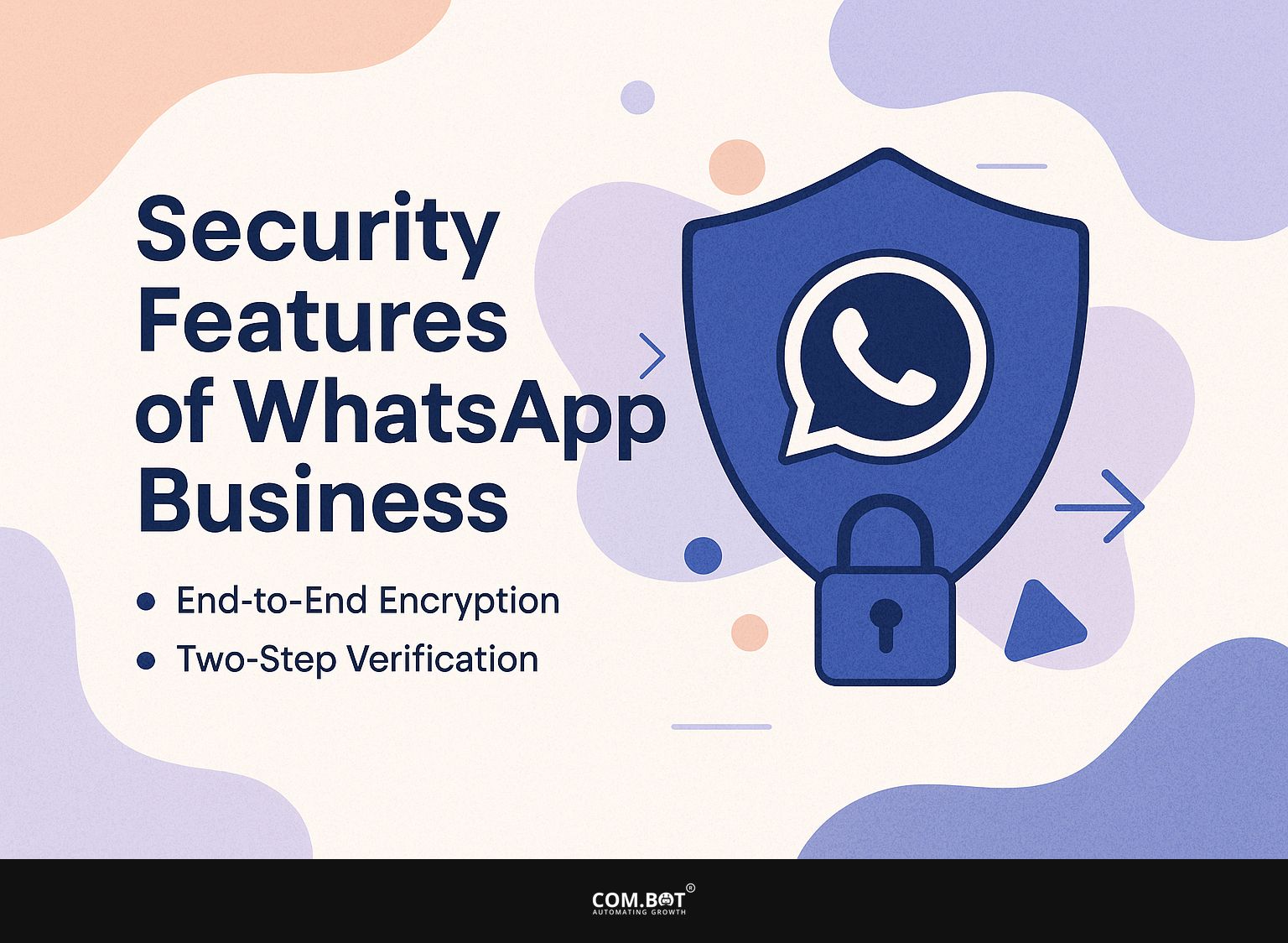
1. End-to-End Encryption
End-to-end encryption makes sure that only the sender and receiver can read the messages sent on WhatsApp Business, keeping customer conversations and personal information safe from being intercepted. This encryption technique secures data by scrambling it into a code that can only be decoded by the intended parties.
For instance, if a customer shares sensitive information such as credit card details, end-to-end encryption prevents third parties from accessing these messages during transit.
In situations such as healthcare communications, this security measure is important because it safeguards patient privacy. Programs like Signal provide excellent security, which makes them ideal for businesses handling private data.
2. Two-Step Verification
Two-step verification adds an extra layer of security to WhatsApp Business accounts, preventing unauthorized access and ensuring that only verified users can engage with businesses. To enable two-step verification in the WhatsApp Business App, follow these steps:
- Open the app.
- Go to Settings.
- Tap on Account.
- Select Two-step verification.
- Tap ‘Enable’ and create a six-digit PIN that users will need to input when registering your phone number again.
- Provide an email address for recovery options.
This security measure is important because it keeps customer interactions safe from possible breaches, ensuring only authorized employees manage business communications.
Best Practices for GDPR Compliance
Following best practices for GDPR compliance helps safeguard customer information and builds trust. By taking preventive measures, organizations can avoid large fines.
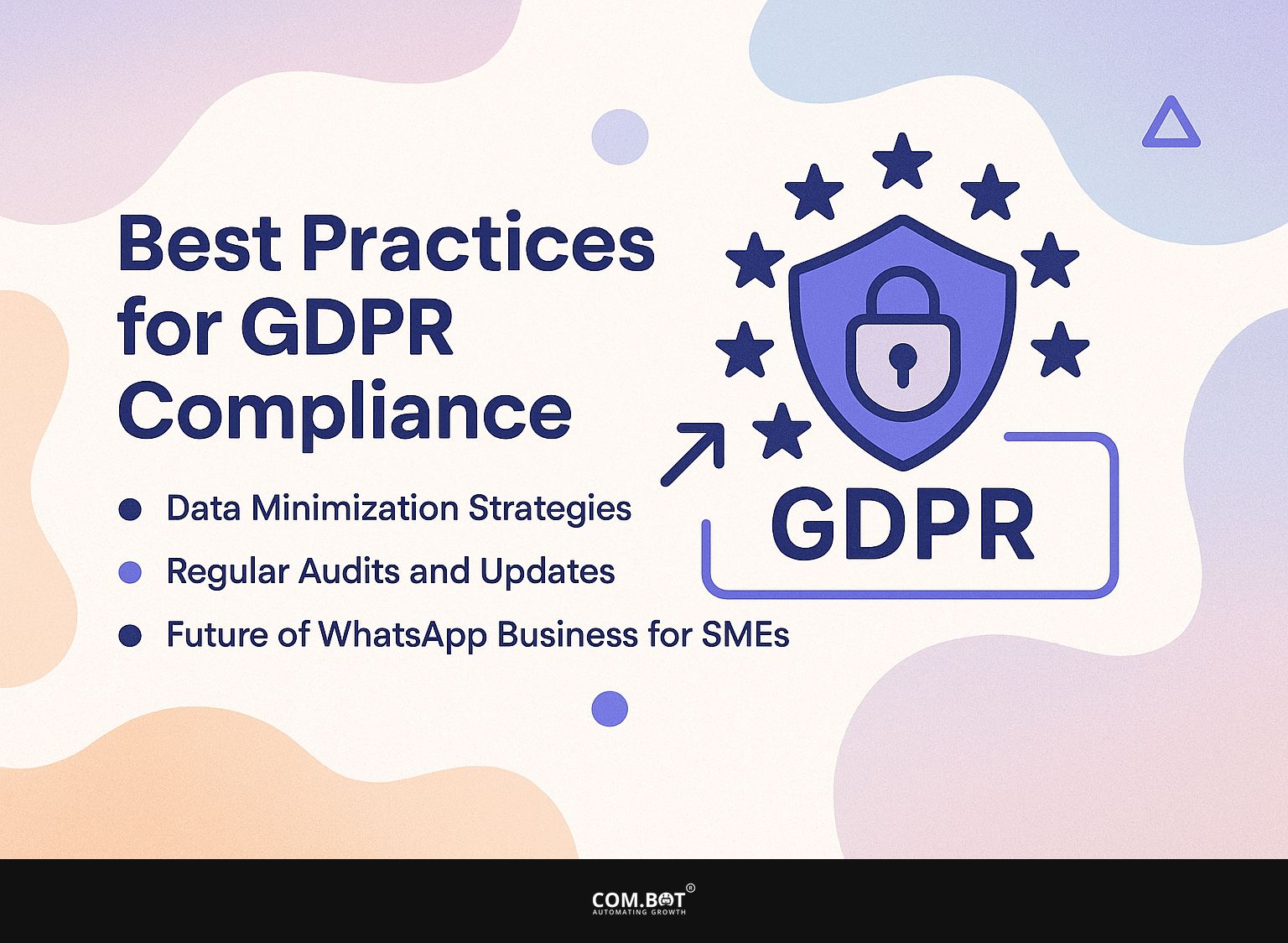
1. Data Minimization Strategies
Data minimization strategies help businesses collect only the necessary information from customers, thus complying with GDPR while enhancing the user experience.
- To implement effective data minimization, start by collecting only essential information during customer interactions. For instance, use forms that require only critical fields such as name and email, avoiding excessive data requests.
- Regularly review your data storage to identify and delete unnecessary information, ensuring compliance. Tools like HubSpot or Typeform help create simple forms, while software like OneTrust helps manage data privacy and retention well.
- By using these methods, companies can increase user confidence while following regulations.
2. Regular Audits and Updates
Regularly reviewing and updating data protection practices can greatly reduce compliance risks, helping businesses keep up with changing GDPR rules.
Look at all data handling actions twice a year to find out where personal data is gathered and how it’s applied. Next, update your privacy policies when there are new rules or changes in your business.
Teach staff about compliance updates every year so everyone understands their duties. Consider using tools like Userlike for tracking user consent and data access, as they provide a clear audit trail, helping you maintain accountability and transparency in data handling.
3. Future of WhatsApp Business for SMEs
The prospects for WhatsApp Business in helping small and medium-sized enterprises depend on how well it fits with privacy laws and improves features that support smooth and lawful customer communication.
A planned update provides improved tools for examining data, aiding small and medium-sized businesses in monitoring user interactions and improving their communication strategies.
For example, businesses can use tools like read receipts and response rates to change how often they communicate and the way they express themselves. Stronger security steps, like end-to-end encryption for business chats, will keep customer data safe.
Keeping up with regulatory changes is important; small and medium-sized businesses must also support user privacy to build trust, presenting themselves as responsible communicators in the online world.
Frequently Asked Questions
1. What is WhatsApp Business?
WhatsApp Business is a messaging platform designed for small and medium-sized businesses to better communicate with their customers. It provides tools like automatic replies, labels, and data to help businesses handle their messages more effectively.
2. How does WhatsApp Business comply with GDPR?
WhatsApp Business, as a messaging platform, must follow the General Data Protection Regulation (GDPR) to protect personal data. It has implemented measures such as end-to-end encryption and data protection policies to meet GDPR requirements.
3. Can SMEs use WhatsApp Business for marketing purposes?
Yes, SMEs can use WhatsApp Business for marketing purposes as long as they obtain explicit consent from their customers. This includes providing clear and specific information about the type of marketing messages they will receive, and giving customers the option to opt-out at any time.
4. Is WhatsApp Business safe for exchanging sensitive information?
WhatsApp Business uses end-to-end encryption for all messages, ensuring the safety and security of any information exchanged. Even so, companies need to be careful about sharing private information and make sure that the receiver’s device is secure too.
5. Can WhatsApp Business be used for customer support?
WhatsApp Business offers a “Quick Replies” feature that lets businesses store and reuse common messages, making it useful for customer support. It also offers the option for businesses to set an “away” message to let customers know when they will be available again.
6. Does WhatsApp Business have any data retention policies in place?
WhatsApp Business has a data retention policy that states it will keep certain data, such as phone numbers and message history, for a specific period of time. This is to keep the platform running well and make the user experience better. Companies can ask for their data to be removed whenever they want.
